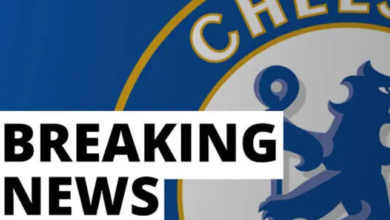
Frenkie de Jong, widely celebrated for his poise, tactical intelligence, and exceptional technical skill on the football field, has been a vital figure for Barcelona since his arrival five years ago. His remarkable ability to dictate the pace of play, execute incisive passes, and seamlessly adapt to different positions on the pitch has solidified his status as an indispensable player in the squad. However, an intriguing statistic has emerged that may catch many supporters by surprise.
Over the course of his five-year tenure at Barcelona, De Jong has conceded three penalties. While this figure might initially seem negligible, it stands out when juxtaposed with the Dutchman’s reputation as a player who thrives under pressure and rarely puts a foot wrong. For someone renowned for his precision and calmness, conceding penalties is an unusual blemish on an otherwise stellar career.
De Jong’s contributions on the defensive end often go unnoticed due to his significant influence in Barcelona’s attacking play. Yet, as a central midfielder, he is regularly involved in high-stakes defensive actions, such as critical tackles and interceptions. These moments are vital to maintaining Barcelona’s defensive integrity but also come with inherent risks. The three penalties conceded serve as a subtle reminder of the razor-thin margins in football, even for players of De Jong’s exceptional caliber.
What makes these penalties particularly noteworthy is the context in which they occurred. They weren’t the result of careless or reckless play but rather moments where De Jong took extraordinary measures to protect his team in challenging situations. Far from undermining his reputation, this statistic highlights the immense responsibility he shoulders every time he dons the Barcelona jersey.
Despite these rare instances, De Jong’s overall defensive record remains outstanding. His exceptional positional awareness, sharp game-reading ability, and clean tackling have earned widespread acclaim from coaches and pundits alike. These qualities render the penalty statistic more of an intriguing anomaly than a point of concern. Considering the hundreds of matches he has played, the ratio is insignificant in the grand scheme of things.
De Jong’s dedication to the team is evident in every game. Whether he is orchestrating attacks from deep, sprinting back to provide defensive cover, or making critical last-ditch challenges, he exemplifies unwavering commitment. The penalties conceded reflect his willingness to put everything on the line for Barcelona, showcasing the depth of his loyalty and determination.
Moreover, De Jong has consistently demonstrated his ability to learn and grow from every experience, both positive and negative. This statistic is unlikely to shake his confidence; instead, it may serve as motivation for him to further refine his defensive approach. Such moments add richness to his story as one of the most well-rounded midfielders in contemporary football.
When viewed in a broader context, De Jong’s contributions to Barcelona far outweigh these rare lapses. He embodies the club’s philosophy of intelligent, possession-based football, with his vision and creativity playing a key role in transforming games. It’s no surprise that he has become a fan favorite at Camp Nou.
Ultimately, these minor missteps are simply a part of De Jong’s journey. They are a reminder that even the finest players encounter moments of imperfection. What sets De Jong apart is his resilience—his ability to learn from these experiences and emerge stronger. As he continues to evolve, this statistic will fade into obscurity, overshadowed by his numerous achievements and the lasting impact he has made at Barcelona.
When Frenkie de Jong next steps onto the pitch, fans can rest assured that he will give everything for the team, penalties or not. In the grand narrative of his Barcelona career, this statistic is a mere footnote in a larger story of brilliance, growth, and unwavering dedication.




